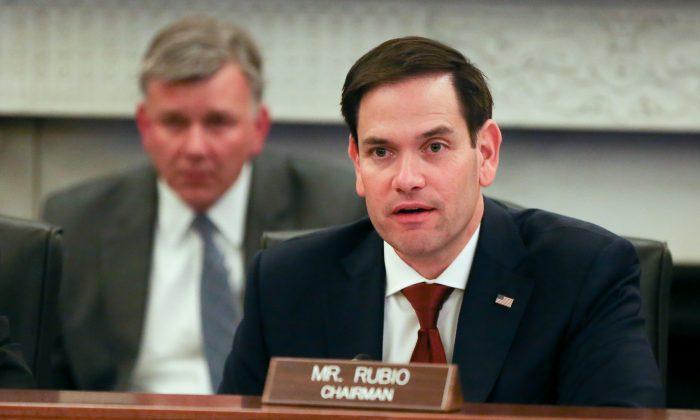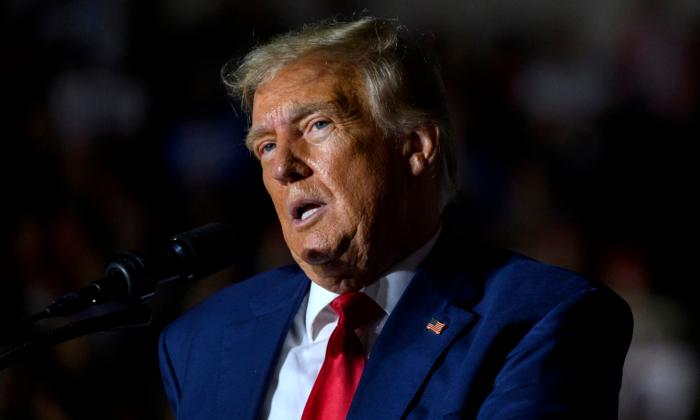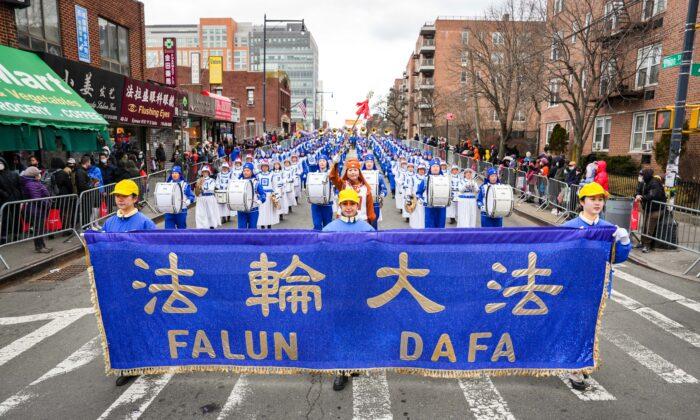In a show of support for protesters in Hong Kong, a bipartisan group of U.S. lawmakers on June 13 reintroduced legislation that would require the United States to review whether special trading privileges currently afforded to Hong Kong should continue.
The legislation, introduced by Sens. Marco Rubio (R-Fla.), Ben Cardin (D-Md.), James Risch (R-Idaho), and Bob Menendez (D-N.J.), would require the U.S. secretary of state to issue an annual certification of whether Hong Kong is sufficiently autonomous to justify special treatment under the U.S.–Hong Kong Policy Act of 1992.
Those areas of special treatment for Hong Kong include visas, trade, and investments.
Under the act, the president may, by executive order, suspend that arrangement if the president deems that Hong Kong is “not sufficiently autonomous.”
Residents of Hong Kong have turned out in record numbers to protest proposed amendments to the city’s extradition laws that would allow persons to be transferred to mainland China for trial. Opponents of the bill say it would allow critics of the Chinese regime to be extradited to the mainland on trumped-up charges, eroding the city’s autonomy and undermining its status as a financial hub.
Protests on June 12 forced the postponement of scheduled debates on the bill. Another mass demonstration has been planned for June 16.
“Bipartisan concern about the erosion of Hong Kong’s autonomy has been growing for several years, but the proposed extradition law has taken that concern to new heights,” said Risch, who is chairman of the Senate Foreign Relations Committee.
“I continue to urge that the extradition law be withdrawn or indefinitely postponed. Passage will compel the U.S. Senate to re-evaluate aspects of the U.S.–Hong Kong relationship.”
The proposed law would also require the president to issue a plan to protect U.S. citizens and businesses from the Hong Kong bill, including by issuing a travel advisory to Hong Kong and determining whether to revise the country’s extradition treaty with the city.
The U.S. bill would also require the president to identify persons responsible for the forced removal of people from Hong Kong to the mainland for detention, and freeze their U.S.-based assets and deny them entry into the United States.
In recent years, several Hong Kong booksellers who distributed books critical of Chinese communist leaders have been detained in China, where they have undergone forced confessions.
The legislation is expected to be introduced in the House on June 13 by Reps. Jim McGovern (D-Mass.) and Chris Smith (R-N.J.). House Speaker Nancy Pelosi (D-Calif.) also earlier expressed support for the bill.
“The extradition law proposed by Beijing loyalists in Hong Kong would allow political dissidents, minorities, and foreign travelers in Hong Kong to be spirited away to China’s secret police on the mainland,” the senators wrote.
“The people of Hong Kong are assembling in the streets to resist this threat to their freedom.”






Friends Read Free